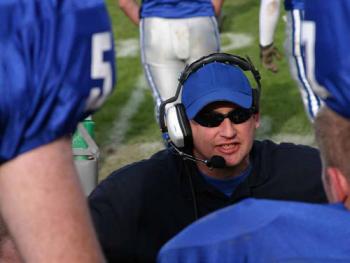
How To Be a Good Coach

The development of subordinates is a major supervisory responsibility, and coaching is a basic part of employee development. Just as in a sporting event, coaching is observing behavior and providing feedback that is both immediate and specific. If you are concerned with efficiency as well as with getting work done, you can easily help each of your people with their work problems. Here are ways you can be a good coach:
When one of your people undertakes a major project, track the individual’s progress by first having him or her agree with you on the feedback system you will use.
When someone seems to be attacking a problem incorrectly, try to find out if he or she clearly understands the problem, and then help the individual to get back on the right track.
When you notice someone wasting time on unimportant details, explain to the individual what you have observed, and then suggest how to set priorities to make better use of time.
When a person is slowed on a job by a roadblock, discuss it with him or her and encourage the person to find a way to get around it.
When you see someone struggling with a particular job, let the person continue working at the job but stand by ready to give advice of help if requested.
When an individual proposes something that you know won’t work, discuss the idea sincerely, point out the problem and encourage the individual to modify his or her proposal.
When someone’s attitude irritates the people he or she works with, discuss this with him or her, show what is happening and suggest ways for the individual to handle the problem.
When an individual’s performance is not satisfactory, identify the failing or weakness and then suggest how they might be improved.
When a person needs to make considerable improvement, measure his or her performance visually and then use it as a training tool with the person.
When one of your people shows significantly improved performance, recognize the achievement immediately rather than waiting for the regularly scheduled appraisal meeting.
Effective Ways to Handle Mistakes
Anyone who has a job to do is going to occasionally make a mistake. Making errors and mistakes is a human trait and happens to everyone. Although you can expect the people who work for you to make mistakes, what you do about those mistakes should be your main concern. You have some control over the frequency and severity of mistakes if you deal properly with them.
Supervisors are effective in dealing with mistakes when they adopt techniques that enable themselves and their people to learn from such errors. As a result, fewer and less serious mistakes are made in the future. You should investigate a mistake as soon after it occurs as possible because you may still be able to limit the loss or damage by corrective action. Determine a mistake’s importance and significance first. You will then see how much time and effort you should put into contending with it. Plan to investigate every mistake you learn about; this is the only way to assure that something is done towards preventing reoccurrence.
Don’t jump to conclusions when investigating. You may not learn the cause if you do. It’s difficult, if not impossible, to take corrective action if you don’t know the cause.
Always maintain your composure by being careful to not show resentment against someone who made an error. Remember that everybody makes mistakes. If you discuss the mistake with the person at fault, be sure your comments are constructive and also given in private. Avoid belittling or ridiculing.
The most important step of handling mistakes is what you do after investigating them. Take positive steps to prevent reoccurrences.
 J.D. McHenry is the President of Global Jet Services. He has been involved in numerous aviation maintenance and flight operation programs for more than 31 years. His background includes aircraft manufacturer, corporate flight operations, FAR 91 & 135 operations, aircraft management, repair stations, and fixed base operation. He holds and A&P, IA and Doctorate of Business Management. Global Jet Services goal is to lead the way in aviation maintenance training standards. Global Jet Services and FlightSafety International are business partners offering the “Shared Resources” program. For more information visit www.GlobalJetServices.com.
J.D. McHenry is the President of Global Jet Services. He has been involved in numerous aviation maintenance and flight operation programs for more than 31 years. His background includes aircraft manufacturer, corporate flight operations, FAR 91 & 135 operations, aircraft management, repair stations, and fixed base operation. He holds and A&P, IA and Doctorate of Business Management. Global Jet Services goal is to lead the way in aviation maintenance training standards. Global Jet Services and FlightSafety International are business partners offering the “Shared Resources” program. For more information visit www.GlobalJetServices.com.
